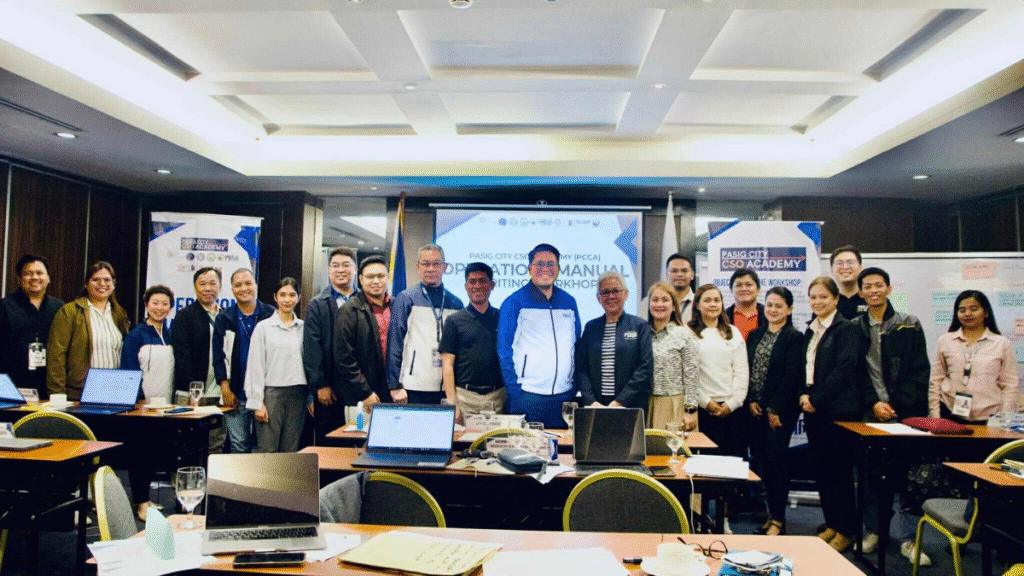Pasig City, Philippines – Rizal Technological University (RTU) continues to affirm its commitment to community empowerment and participatory governance through the active participation of Instr. Ricardo H. Momongan, Jr., Director of the Extension and Community Services Office (ECSO), together with Instr. John Benedict Alim, Project Leader of the Project MAKE (Monitoring, Adapting, Knowledge Transfer, and Empowerment) extension program, in the Pasig City CSO Academy (PCCA) Operational Manual Writing Workshop held on October 8–10, 2025, at Astoria Plaza, Ortigas City.
The three-day writeshop, jointly organized by the Department of the Interior and Local Government (DILG) – Pasig City Field Office, Pasig City Local Government, Pamantasan ng Lungsod ng Pasig, Rizal Technological University, and Advocacies in Praxis for Leadership and Community Development, Inc. served as a strategic platform to craft the Operational Manual of PCCA.
The activity aimed to streamline the Academy’s standard operating procedures, policies, and sustainability framework, ensuring that the PCCA, which was recognized as the first CSO Academy in the National Capital Region, continues to serve as a benchmark for civic engagement and local governance nationwide.
Instr. Momongan and Instr. Alim represented RTU as one of the PCCA Pillars, contributing their expertise in community engagement, capacity development, and extension management. Through Project MAKE, RTU reinforces its dedication to the PCCA’s vision of empowering civil society organizations (CSOs) to become active partners in open government and social reform.
The workshop featured plenary sessions and group writeshops focusing on organizational framework, operational procedures, curriculum development, monitoring and evaluation systems, and fellow welfare management. Experts from DILG-NCR, Pasig LGU, and partner academic institutions facilitated key sessions.
As part of the training management team, RTU’s participation underscores its mission to integrate academic knowledge, research, and community service in fostering inclusive local governance. The resulting PCCA Operational Manual is expected to serve as a comprehensive guide in managing the Academy’s operations and sustaining its long-term impact.






